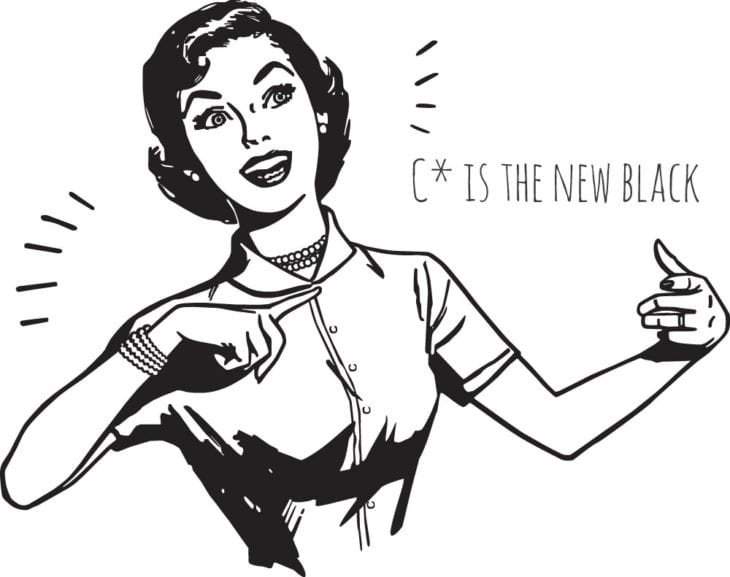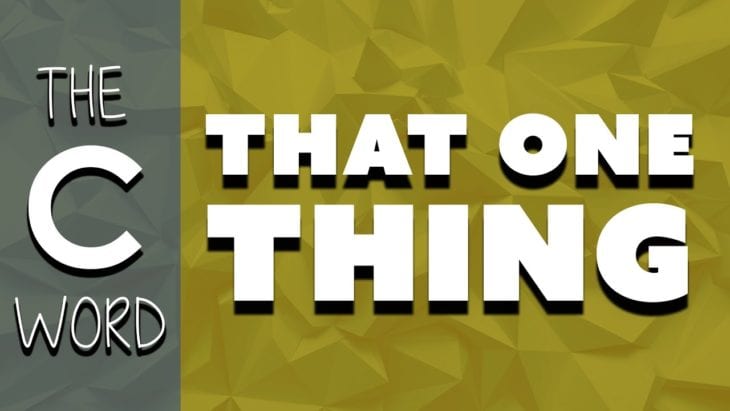Anthony Weiner’s communications director calling a former intern a “cunt,” “slutbag” and other slurs is just one aspect of the choppy waters surrounding the sex scandal-ridden NYC mayoral candidate’s sinking campaign. But of all the what-are-they-thinking? Weiner campaign moments in the past few weeks, it is the one that has stood out in my mind. Because when Barbara Morgan, the communications director, went off to a Talking Points Memo reporter about former intern Olivia Nuzzi, who dished secrets about the campaign in the New York Daily News, it wasn’t just Morgan’s overall frustration or unprofessionalism that was questionable. It was how she called another woman “cunt.”
That’s a word that I use myself, quite liberally in fact. Now I’m thinking maybe I shouldn’t anymore.
“Cunt” is the worst of the sexualized slurs to call a woman. (Or in the disgusting case of Quevenzhane Wallis and The Onion, a nine-year-old girl.) It’s so bad The Frisky has to hyphenate it as “the c-word” in headlines. It can’t be said on television. With the exception of Inga Muscio, author of Cunt: A Declaration Of Independence, not too many women are hustling to reclaim it — unlike “slut” or “bitch,” both very loaded words which have their own complicated gendered, racialized histories but nevertheless have been reclaimed by feminists. “Cunt” is not a word that I ever heard growing up in my home, so I can distinctly remember the first time a young man called me one. It was 8th grade, sitting in the middle school cafeteria, and I didn’t even know what “cunt” meant so I had to ask my friends to explain. And I was both mortified and hurt that this boy would call me such a word, which I am certain is exactly what he intended.

Source: Carben Creative
My thoughts on “cunt” are so different now that I’ve been called a cunt by trolls on Twitter, Tumblr and in blog comments more times than I can count. Simply from it’s overuse as a slur against me, “cunt” doesn’t have a sting anymore. “Cunt” is one of many words (ugly, dumb, bitch, etc.) that I invariably get called when someone doesn’t like some piece that I’ve written and is trying to personally attack me. The bitterness is lost because I understand personal attacks, especially ones based on gender, race or sexual orientation, are always a sign that someone doesn’t have more constructive weapons in their arsenal. I can just laugh at them.
But just because the word has lost its bite for me doesn’t mean it has lost its bite for everyone. If it did, why else would I use it? For a few years, I’ve said the word “cunt” liberally around my friends. Yet it wasn’t until reading a piece yesterday on The Daily Beast, by the pundit Sally Kohn, called “So Your Boss Called You A Slutbag” about the Olivia Nuzzi debacle, that it occurred to me that “cunt” is a word I only use to describe women. Of the four people who have caused me the most grief in life, two men are referred to as “assholes” while the women are referred to as “cunts.” Except “cunt” doesn’t mean the same thing as “asshole,” “dick,” “shithead,” et cetera. They may all be derogatory and you may use them against any gender, but you can’t dispute that “cunt” is named for the female genitalia. It can’t not be specific to a gender. Whomever you use it against, the slur is meant to imply someone who behaves like a difficult woman. There isn’t really a male version of “cunt” and “dick” just doesn’t come close to “cunt” in offensiveness.
Of course, that’s precisely why I’ve used it: it’s an easy shorthand to mean that both of these women are really, really difficult and unlikable. But I never thought too much before about how I wanted to use this word specifically because of how much it hurt coming from me as a fellow woman. It’s one thing from an anonymous Internet troll to call me a fat dumb ugly stupid cunt. It’s another thing for me to say it about someone I know personally. As Kohn wrote in the Beast:
[M]ost every woman in the workforce knows the particular sting that can only come from another woman—that sense of solidarity as you’re pressed in together beneath the glass ceiling shattered with excruciating precision in the way only another sister can do. In general, it just hurts more when another woman calls you a ‘cunt.’

Source: YouTube
“Solidarity” might not be a word many third- or fourth-wave feminists use conversationally too much anymore. I’d like to think that’s because we’re living the concept — that we’re all in this together regardless of our sexual orientation, class, race or other differences — better than waves of the past. Ergo, there is a particular hurt when that feeling of solidarity with another woman doesn’t exist. If I’m honest, the women who are cunts do get me a lot more worked up than the guys who are assholes because I do expect some solidarity from them as a fellow woman. (Whether that’s a reasonable expectation or not is another essay entirely.) There is also something to be said for how social conditioning manifests aggression towards other women as “easier,” so to speak, and has less consequences to it than aggression towards the patriarchy. (In fact, plenty of people are all to grab their popcorn over women-on-women aggression and call it a “catfight.”)
Alas, until now, I never considered before how maybe they expected some solidarity from me — say, not referring to them as cunts, even without their knowledge. While I have legitimate reasons to be frustrated or angry at these women, I don’t see how it helps Capital-F Feminism in general if I’m using a sexist slur to express it. I certainly don’t think it was professional or, on a human level, acceptable, that Weiner’s communications director called the ex-intern Olivia Nuzzi a “slutbag” and “cunt” and all those other nasty words. Morgan looks like a misogynist asshole. It shouldn’t be any different for me.
I am proud that in my personal life I’ve been able to defang (to be clear, not reclaim — just defang) a sexist slur used against me. But I’m not so proud that I use that same sexist slur against women. And from now on, I’m going to try to be better.
Original by: Jessica Wakeman
